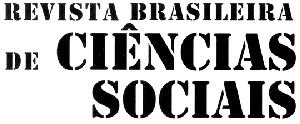In the 1990s, the dispute between states and municipalities for new investments in the automobile industry increased in terms of frequency and intensity. Few states could resist the temptation to offer enormous incentives to car manufacturers with the hope of gaining jobs, technology and more taxes in exchange. The competition was baptized the "fiscal war" because the game was based basically on revenue and future tax collection of the ICMS, a kind of value-added tax collected by the Brazilian states. As time went by, the mechanisms used to attract new investments were becoming increasingly sophisticated and more difficult to abolish by an eventual tax reform at the national level. The current question at the bottom of the fiscal war has both a national and political dimension. In fact, it touches upon the bases of our society by revealing the need to find a new equilibrium between cooperation and conflict among Brazil's federation of states. Our central hypothesis is that this dispute, in its actual form, represents an enormous waste of public resources for state governments and the country as a whole. The rules of the game, the weapons involved, and the territory of the fiscal war favors, in the first instance, the large car makers.
Fiscal war; Automobile industry; Public policy; Industrial policy; Regional development






